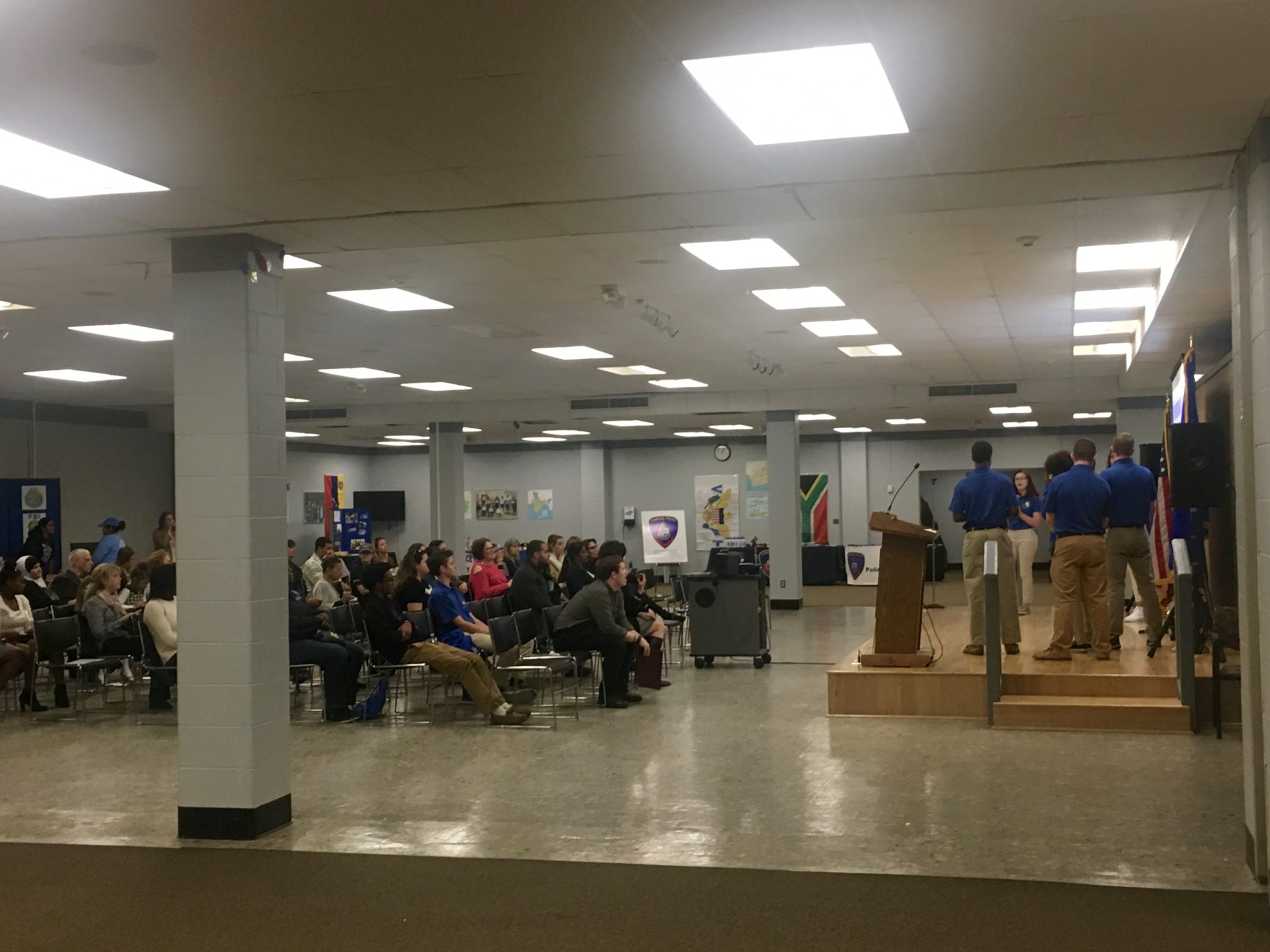
Police officers, youth law enforcement and members of the New Haven community gathered on Saturday morning at Albertus Magnus College to discuss ways for law enforcement and local residents to work together for the wellbeing of the community.
The event — titled “Community, Cops and Culture” — was co-hosted by the Connecticut FBI Outreach Team, the New Haven chapter of the Anti-Defamation League, the New Haven Police Department and the Connecticut State Police Department with a goal of strengthening relationships between ethnic communities and law enforcement. The event was organized by Charlie Grady, the FBI community outreach specialist in New Haven. Police officers from local departments, some of whom were first-generation U.S. citizens, gave demonstrations about their immigration experiences and reasons for becoming police officers.
“The ties between the community and law enforcement are tremendously important because we need to be united against hatred, bias, bigotry and violence,” said United States Sen. Richard Blumenthal LAW ’73, D-Conn.
Blumenthal told the News that New Haven’s police officers and prosecutors need support from the community to do their jobs effectively. He added that he hopes the entire community supports law enforcement, even if elements of bigotry and bias divide the community.
The event demonstrates that New Haven and the whole of Connecticut are taking a significant step forward in the right direction, to encourage tolerance and to strengthen relationships between law enforcement and minorities within the community, Blumenthal said.
In his remarks at the event, Blumenthal spoke of his shock and horror at recent events like the Charlottesville protests, saying he believes the American people as a whole reject the politics of division and hatred.
After the speeches, FBI specialist Grady told the News that the climate of division in the country inspired him to organize the event. He said he wanted to do something that would bring law enforcement and the community together.
Grady added that the Connecticut law enforcement officers who are first-generation U.S. citizens and who attended the event represent nine different countries outside the U.S. It was necessary for community members to see that Connecticut’s law enforcement represents them, he said.
Raising awareness about hate crimes that have occurred throughout the country while also celebrating the diverse ethnic and national backgrounds of police departments was central to the event, Grady said. He added that bringing awareness and celebration are equally important.
“One is just as powerful as the other,” he explained.
Events like the one on Saturday unite people, he said, and that is what the country as a whole needs.
Event attendee Frank Crowley, a Westbrook resident, said he attended the event because he was interested in the speakers who were on the schedule, particularly the presentations from the 10 first-generation U.S. citizens and immigrants who have trained to become local police officers.
He explained that he designed a show in Westbrook called “Poetry of Immigrants” to help welcome immigrants in a part of the state that voted overwhelmingly for President Donald Trump.
The Future Law Enforcement Youth Academy also presented at the event about one of its programs that allows young adults aged 15 to 18 who want careers in law enforcement or at the FBI to spend a week in the summer living on Yale’s campus and training for a career in law enforcement.
“The relationships that are forged and the futures that are shaped [by this program] are amazing,” Grady said.
The program gives its adolescent participants an inside look at what it is like to work at the FBI, teaching them about various local, state and federal law enforcement careers.
Albertus Magnus College is located at 700 Prospect St., New Haven.
Christina Carrafiell | christina.carrafiell@yale.edu







